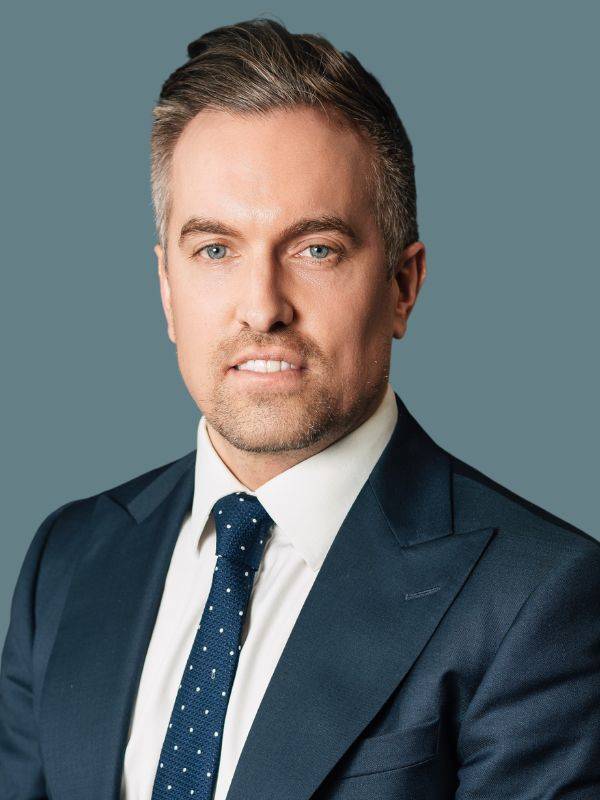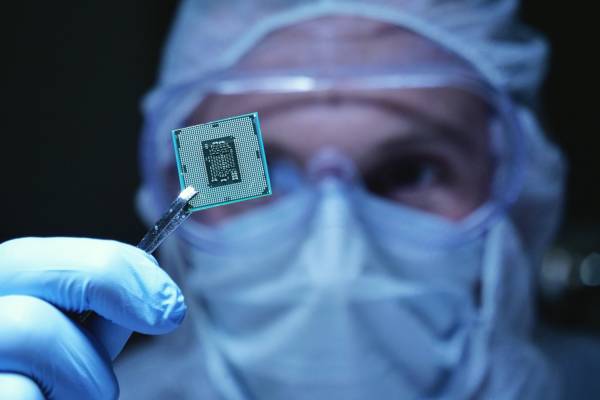Semiwiki interview with Ollie Jones
Interview with Sondrel’s new CEO, Ollie Jones, by kind permission of Semiwiki.com

Sondrel has just appointed a new CEO, Ollie Jones, so we had a chat with him to find out his vision for the company.
Sondrel was founded over two decades ago in 2002 and is a well-known name in Europe but not in the USA. Why do you think that is?
Sondrel is fundamentally a service company. To give customers the best possible service when you are starting out, you need to be close to them so, being headquartered in the UK, Sondrel focussed on the UK, European and Israeli market for the first phase of the company’s growth as it is our home region. That enabled us to ensure that we built up a reputation with customers for going above and beyond in order to deliver high quality products. As we grew from pure “design services” towards more turnkey “ASIC” developments, we expanded our skills with design centers to include Morocco and India. It is only recently that we have started addressing the American market as we believe that we offer something that US customers want.
So how are you differentiating yourselves?
We sit perfectly in the zone of just the right size to be able to deliver chips with a high level of personal service. Our rivals are often too large with too many projects to give the level of personal service that we provide or too small to have the expertise needed to deliver the kinds of ultra-complex custom chips that are our speciality. This is 100% aligned with my own career, which has always been customer focussed. At Sondrel, we want customers to be successful and are completely focused on that mission. That means giving each customer a level of care and attention to details that will be almost impossible to match.
How does that tie in with delisting from being on the stock exchange and going private?
The challenge with being a listed company is that you have two objectives that can often conflict. Firstly, to deliver to investors who often have short timeframe goals and, secondly, to deliver to customers where the timescales are measured in many months. And there are times when it is very difficult to do both effectively as many companies have found and have gone back to being private. Sondrel is company with amazing engineers, huge experience and a stellar reputation with customers. That’s a solid foundation for the future of any company. And so that became the course of action with a delisting and restructuring. Then, as planned, I became the CEO to really focus, capitalise and commercialize the company’s strengths – customer focus, personal service, high quality and world-class design skills for ultra-complex custom chips.

Your background is from the commercial side of technology. Does that help or hinder you as a CEO?
Absolutely it helps. When you think about it, the commercial aspects are critical to both our customers and our own ability to grow. Over the past year, when I was VP of Marketing & Sales, I met each of Sondrel’s regular customers. Some of them have been using Sondrel for many years for project after project. In every case, when I asked them why pick Sondrel, the answer was always because Sondrel cares. We care passionately about the customer, the customer’s project and the commercial success of the chip – and our strong engineering team reflects this. We will do everything we can to be outstanding partners for our customers. The real shame is that most of our work is covered by NDAs so we cannot talk publicly about all our successes. This customer-first approach is something I’ve embraced throughout my career and was rooted in always seeking solid, mutual commercial success. So, “yes” I think a commercial background is a significant advantage to being a CEO.

It sounds like you are going to be very hands on?
This is very much the way I do things and how Sodrel operates. Frequent face-to-face meetings and continuous communications. People always want to do business with people they know, like and trust. We really dig into a new business opportunity to fully understand what the customer is trying to achieve and what matters most to them. And then we invariably exceed expectations by providing insights and ideas to make the project better by drawing on our experience from hundreds of successful projects. A design project for a billion-transistor chip is incredibly detailed and complex and we have the in-house tools, design flows and experience to deliver to agreed budgets and timeframes.
We work with the customer early in their definition stages, helping the customer where we can to make the right decisions for their chip project, unlike many of our rivals. This builds a huge level of trust and confidence in our ability to deliver chip designs which means that the customers then started asking us to handle the whole chip supply chain process right through to final silicon. This is now a standard turnkey service that enable customers to focus on their skill sets safe in the knowledge that their silicon will be delivered. This is particularly of interest to startups who are skilled in innovation but not in all the challenges of taking a chip through the supply chain stages of the manufacturing, testing and packaging so they need to outsource that to someone like us. And that is why our US office is located in the heart of Silicon Valley so we can provide a personal service to all the exciting innovative startups located there.
There is only one of you, so how can Sondrel provide the level of personal service that you described for every customer?
We do that by having a mindset of customer-first, across the company. We even assign a Customer Success Manager to customer projects. Their job is to ensure that everything is running to schedule and that the customer is always in the loop, ensuring that the customer’s project is successful, which means we are successful in meeting the customer’s expectations. It’s how we deliver a very personal service to every customer.

You have said personal service is what differentiates Sondrel. What does that mean in practice?
Companies come to Sondrel because they want a chip that is custom made to their exact specifications. Basing your project on standard, off-the-shelf chips means that anyone can copy it. A custom chip is unique and the Power, Performance and Area have been tuned precisely to deliver the performance and cost required. And determining those parameters is done right at the start of a project discussion at the Architectural Specification stage. This is a perfect example of where we are different. Our team creates an in-depth, holistic view of the chip, what its functions and features are, and how to make it. For example, what node to use, what IP will be needed, which of our Architecting the Future reference architectures to use, how to incorporate Design for Test, etc. This means that Sondrel provides customers with an incredible detailed plan of how it will successfully design the chip. Often it includes improvements that Sondrel has brought to the table based on its engineers having experience in successfully delivering hundreds of other projects over the years.
This is level of intense personal service inspires confidence and trust that Sondrel will deliver to schedule and requirements that is continued throughout the project with regular meetings so that the customer is always fully informed on progress along with new ideas to make the design even better. For example, in one recent project we were able to reduce the power requirement of the chip, much to the delight of the customer.

You mentioned Architecting the Future. What is that?
This is a family of pre-defined reference architectures that provide a fast start for a new project rather than starting from scratch every time. This means that not only can we deliver a project faster but it also means that we can handle more projects simultaneously as our engineers can focus on the complex novel parts of a design knowing that the framework is already tested and ready to be built on. Reusing trusted IP is fundamental to the ability to design chips and that’s what these architectures are. They reduce risk and time to market to help ensure customer success.
Talking about IP, I note that you have started licensing IP?
That was one of my first tasks as CEO to realise and commercialize existing assets. We have a library of IP blocks that we have created over the years for various projects where we found there was no commercial IP available with the performance or functionality required. They might be a bit unusual but that’s what we need when creating our ultracomplex chip design so, if we needed it for a chip design, then others might as well. In fact, we have just licensed our first IP block – our Firewall IP. It’s yet another way to help customers be successful through our personal service of ensuring that they get exactly what they need.
